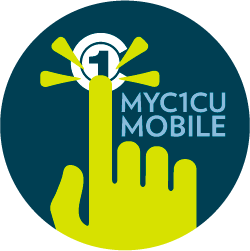Smart Credit Card Practices
October 18, 2023

For many, a credit card is more than just a piece of plastic. It’s a tool that can help build credit, earn rewards, and even bail you out of an emergency. However, if not used wisely, it can also lead to financial pitfalls. Here's a guide to using credit cards wisely, so you reap the benefits without the burdens.
Understanding Credit Cards
First, let’s get one thing straight: credit cards are essentially short-term loans. Every time you swipe, you're borrowing money with the promise to pay it back. And if not paid in full by the due date, interest is charged on the outstanding amount.
1. Start with the Right Card
Different cards have different perks and pitfalls:
- Low-Interest Cards: Best for those who might carry a balance from month to month.
- Rewards Cards: Offers points, cashback, or miles but often come with higher interest rates.
- Student Cards: Tailored for students with lower credit limits and perks for good grades.
- Secured Cards: Requires a deposit up front and is excellent for building or rebuilding credit.
Tip: Do your research! Choose a card that aligns with your spending habits and financial goals.
2. Know Your Limit (and Stick to It)
Every card has a credit limit, which is the maximum amount you can owe at any given time. Regularly maxing out your card can hurt your credit score.
Tip: As a good practice, try not to exceed 30% of your credit limit. For a card with a $1,000 limit, that means keeping your balance below $300.
3. Pay More Than the Minimum
Only paying the minimum amount due can keep you in debt longer and cost you more in interest. Aim to pay your balance in full each month. If you can't do that, try to pay more than the minimum amount due.
4. Set Up Alerts and Stay Informed
Most credit card companies allow you to set up alerts for things like:
- Transactions over a certain amount.
- When your balance approaches your limit.
- A few days before your payment is due.
5. Avoid Unnecessary Fees
- Late Payment Fees: Always pay your bill on time. Set reminders or automate payments.
- Cash Advance Fees: Avoid using your credit card to get cash. It often comes with fees and higher interest rates.
- Annual Fees: Some cards charge an annual fee in exchange for perks. Make sure the benefits outweigh the cost.
6. Protect Your Card Information
- Always check your statements for suspicious transactions.
- Don't give your card number over the phone unless you initiated the call.
- Shop on secure websites (look for "https://" in the URL).
- Report a lost or stolen card immediately.
7. Avoid Impulse Purchases
It's tempting to make impulse buys when you don't feel the immediate pinch from your wallet. Before a purchase, ask yourself if it's a need or a want. If it's a substantial expense, maybe sleep on it.
8. Understand Your APR
APR, or Annual Percentage Rate, is the interest rate charged if you carry a balance on your card. The higher the APR, the more you'll pay in interest. If you're shopping for a card, look for one with a lower APR.
9. Limit the Number of Cards
Having too many cards can make it challenging to keep track of payments. It’s better to have one or two cards you manage well than several cards you can't keep up with.
10. Seek Help if Needed
If you find yourself in over your head, don't be afraid to seek help. Many nonprofit organizations offer credit counseling services.
Conclusion
Credit cards, when used correctly, can be a valuable financial tool. The key is to be mindful of your habits and proactive in your approach. Always spend within your means, pay your bills on time, and stay informed. Remember, it's not just about avoiding debt but building a bright financial future.
Next Up: Setting Financial Goals





